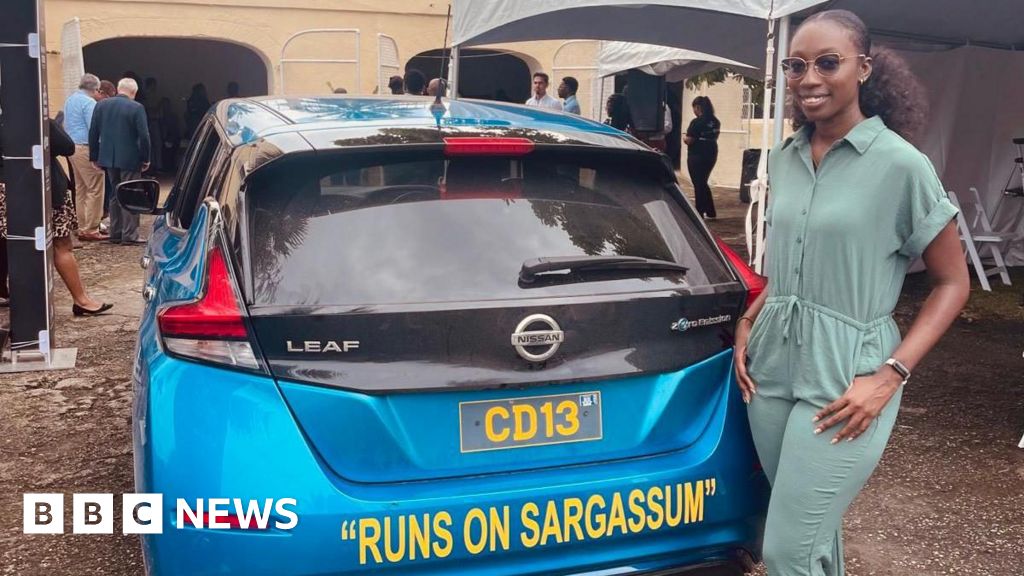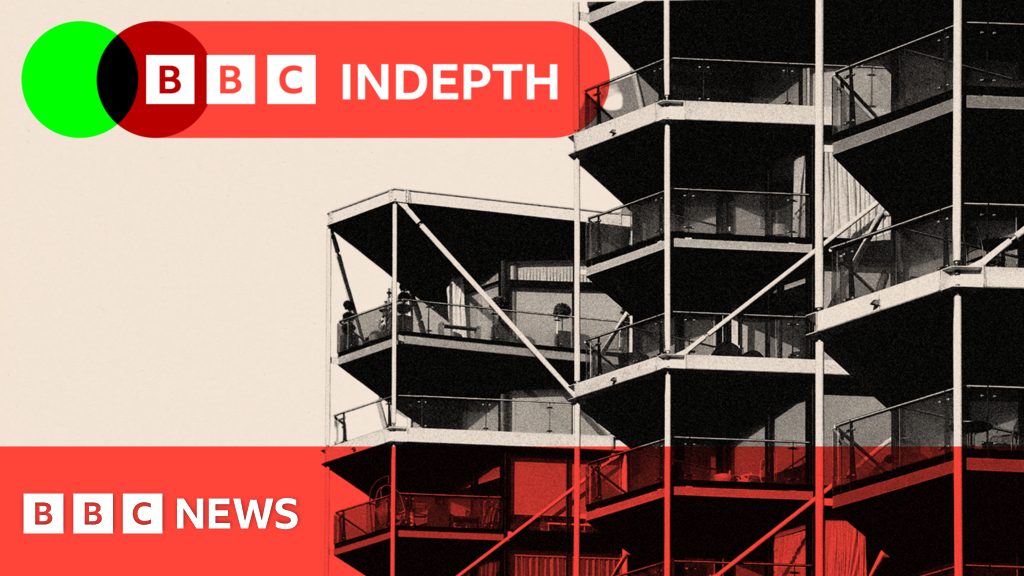She says she leapt at the chance to take part.
“Sargassum has been plaguing the region for several years,” Ms Spencer, who is from Antigua and Barbuda, explains. “I had always wondered about this new seaweed ruining the beaches in Antigua, and when I came to Barbados to study I noticed it here too.”
The algae do not just threaten tourism. They also pose a threat to human health through the hydrogen sulphide they release as they decomposes, along with native wildlife like critically endangered sea turtle hatchlings which get trapped in thick mats of beached seaweed.
Water pollution and warming seas are credited with the upsurge in sargassum, another cataclysmic result of climate change that the Caribbean has done little to contribute to but often bears the brunt of.
Calls for eco reparations from leaders including Barbados’ leader Mia Mottley and Antigua’s Prime Minister Gaston Browne have been clamorous in recent years as the region battles ever-rising sea levels and worsening storms.
While waiting for those to bear fruit, this project represents one example of the Caribbean taking its environmental future into its own hands.
“I realised it was important that after removing the sargassum from beaches, it doesn’t just go to landfills,” Ms Spencer continues.
“By repurposing it in vehicles you protect tourism and prevent people from inhaling it. When we scale up to fuel more vehicles it will require a very large volume.”
Watching the successful test drive of a biogas-charged Nissan Leaf – supplied by the Caribbean Centre for Renewable Energy and Energy Efficiency – was utterly exhilarating, smiles Dr Henry.
The MIT-educated mechanical engineer knew she was risking her reputation should the venture fail.
“We didn’t sleep the night before the test drive event,” she admits. “I was putting my whole life’s work on the line.”
Dr Henry and her husband, career data scientist Nigel Henry, created deep tech firm Rum and Sargassum Inc and are on a mission to change the face of energy production in the Caribbean.
Both are originally from leading oil producer Trinidad, studied in the US and were determined to bring their skills back home.
“My goal is to help build up this region,” Dr Henry says. “We are now setting up a four-car pilot to demonstrate real life working prototypes to convince funders that this is workable and scalable.”
She estimates it will cost around $2m to display initial commercial activity and $7.5m to reach the point where the company is able to sell gas to 300 taxis in Barbados.
Potential funders include the US Agency for Internationals Development, the European Union and international development banks through debt financing.
The team plans to expand its work by setting up a biogas station to replace its small existing facility.
UWI hopes to introduce other sargassum-based innovations too, such as pest control products.
Ms Spencer says it’s been “heart-warming” to witness the results of the team’s research.
“Just seeing the actual potential is motivating me to keep working,” she adds.
Credit: Source link











